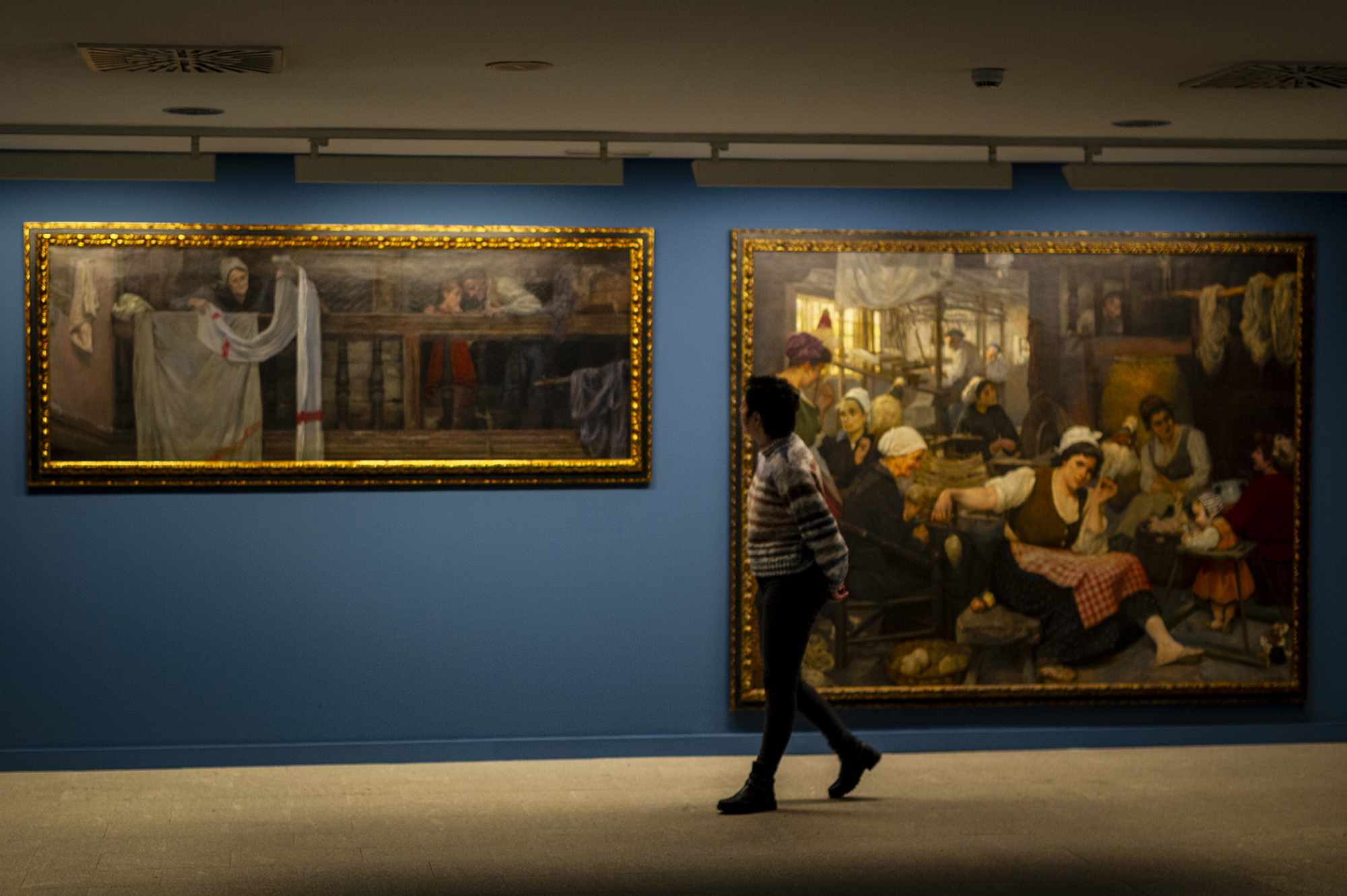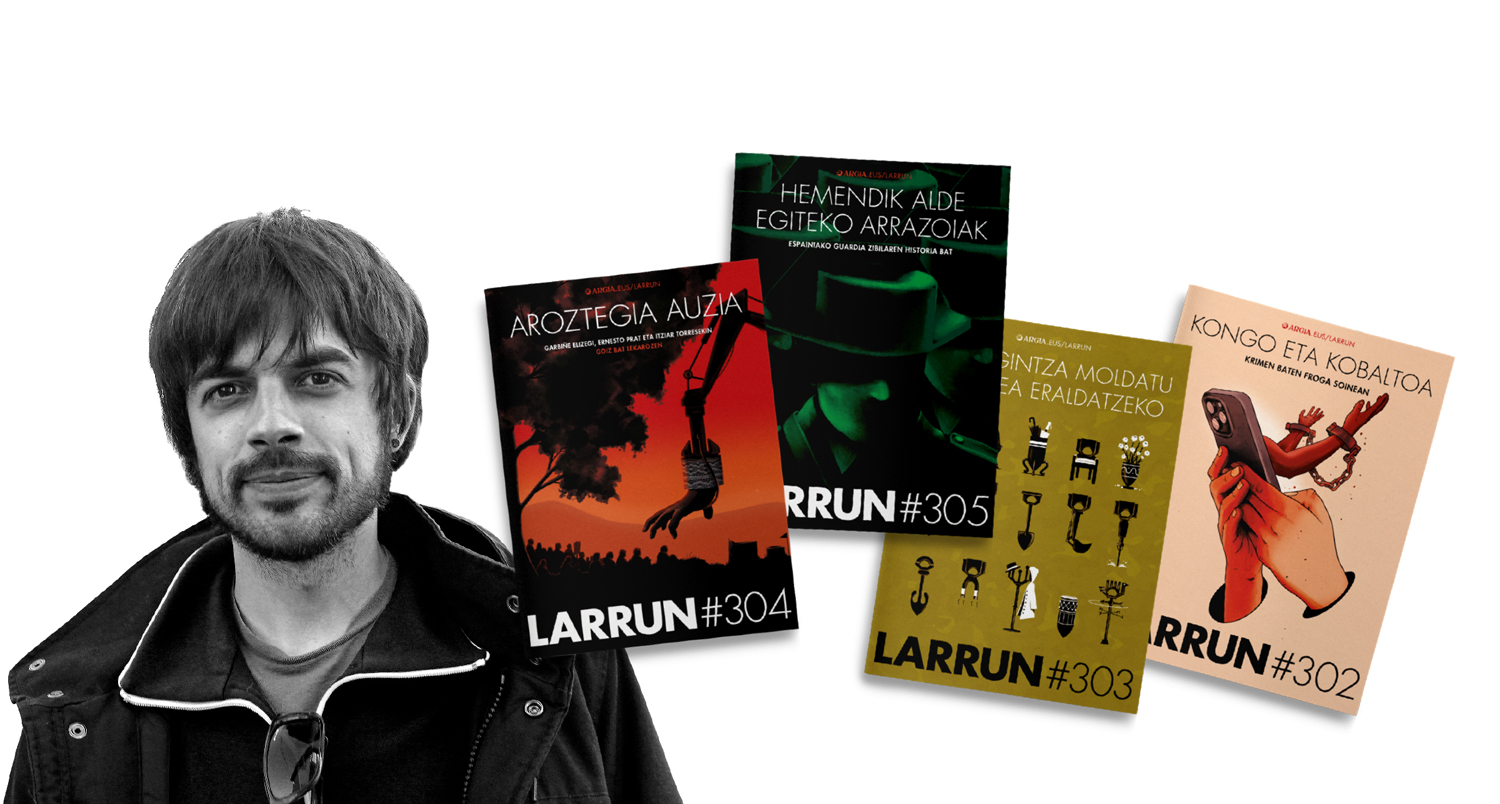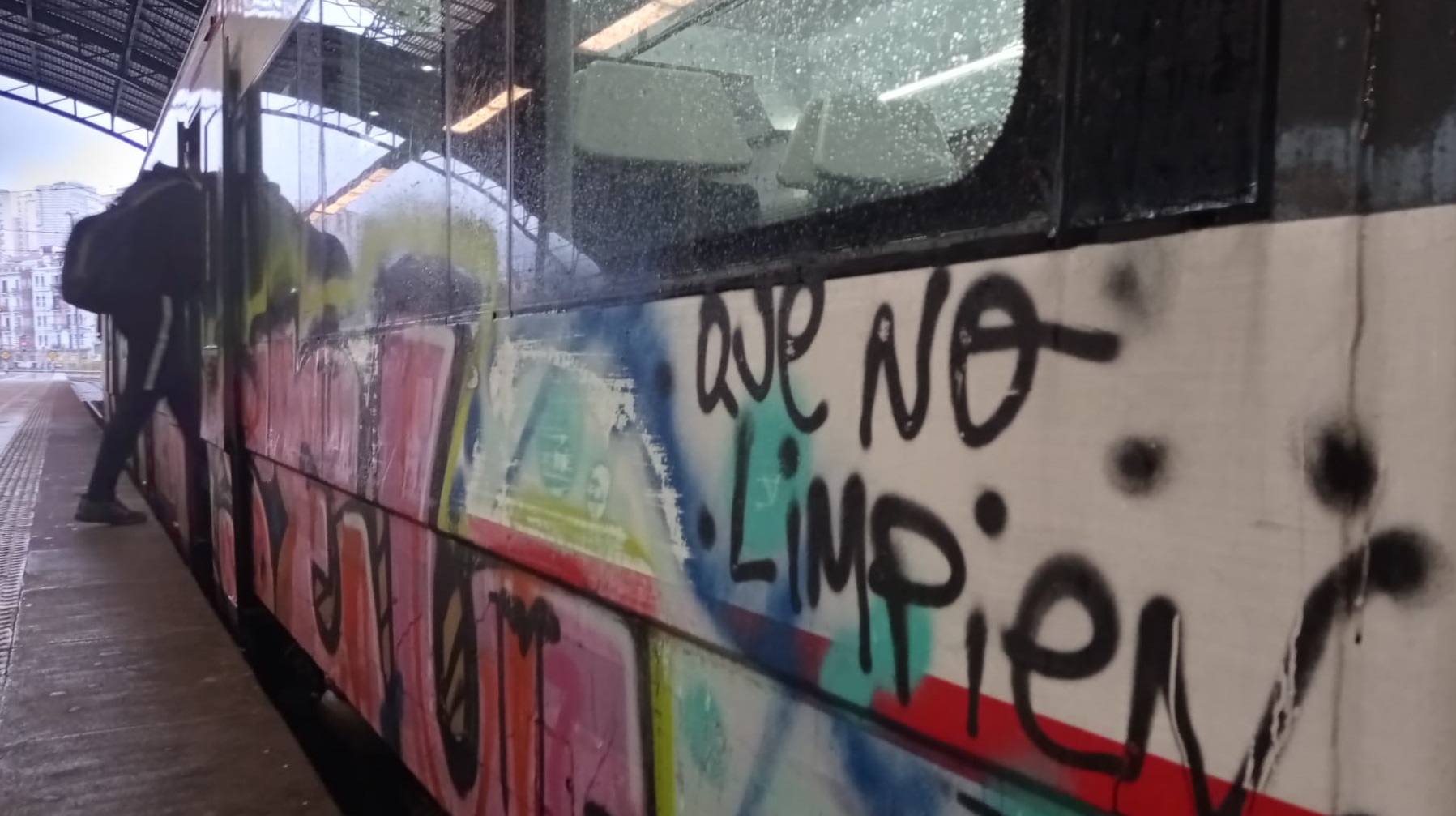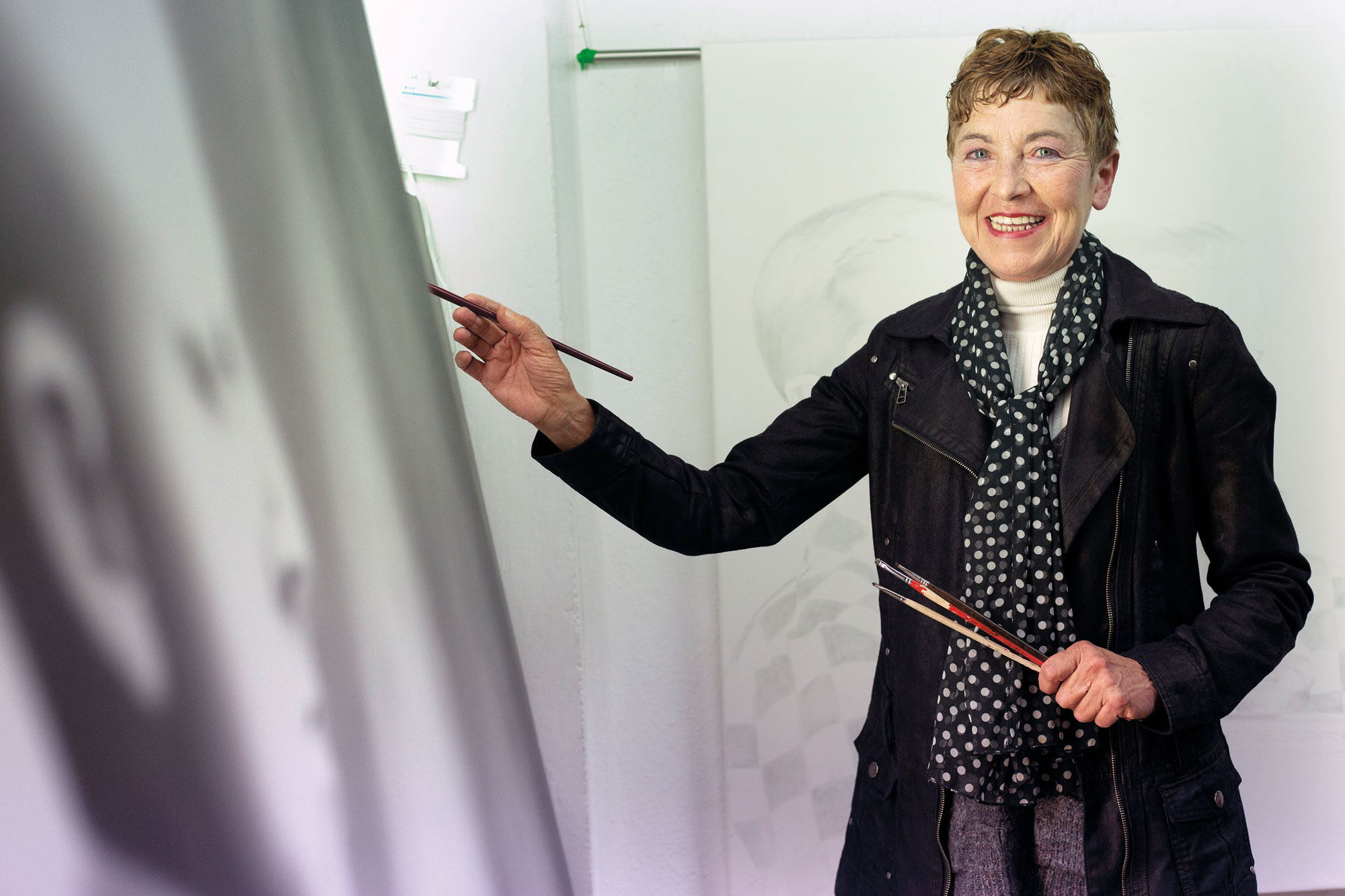“Political intentionality gives meaning to the collectivization of knowledge”
- The Ekida Socialist Art Initiative has organised an art school in Donostia-San Sebastián, which will be held between Wednesday and Saturday. In parallel, for four days, two training sessions will be held: one on muralism and visual arts and another on theatre and performing arts. Access will be free, as they claim “universal access”, but registration is closed. Organizers expect to bring together about 150 people each day, so that attendees can participate in the event. The Saturday programme will be open to the general public. ARGIA spoke to Paul Beitia, one of the members of Ekiza.

This type of Day Schools is not often seen.
It is also rare because it will be done from a totally voluntary and militant point of view. It will be free for anyone who wants and can go for quality training. The days will be politicized, and that is not usual either. If a city council or the UPV/EHU organizes, I do not know what, it does so from a supposed “neutrality”, for we say from the outset that we will work the matter from a political point of view.
I also think it's a reason to encourage people. Not only will those who have an artistic professional vocation, or who work professionally, come. But it will be an opportunity for everyone who wants to learn. And although symbolically it is important to do so in the Socialist Center of San Sebastian, between Tabakalera and Dabadaba, in the clash of cultural models.
What role do these schools want to play?
One of the fundamental principles of this is to facilitate universal access to art, generally understood art, and in this case training. And to the extent that it's universal, free. The idea of socialization is linked to this idea. We regard it as a principle. We have put these classes for free, but all the shows we have assembled have also been free, plays, etc.
It is often said that access to art is universal, that it is democratized, or that it needs to be deepened. But also, in a sense, it's polarized. Access is not the same for everyone, especially in training.
To what extent or how is your free offer counterbalanced with an economic structure built around art and culture?
The model that exists is radically contrary to our own, because it goes in the line of capitalism. This is an issue that goes from the mouth to the tip of a monopoly model, which is fully institutionalised. The vast majority of art projects are carried out by institutions, and that has great ideological consequences. We are also seeing the model being hidden in the hands of large companies, as in other areas of society, to produce art and therefore consume.
There is much talk about the need to professionalise culture and the artist.
Culture has been professionalized for years. The artist is no longer the one who spontaneously throws a bertso at the center of the plaza, or sings while he works, or the one who renounces his usual life. He's an artist who's been working for years. That's the figure of the modern artist. The artist creates it for the market and is therefore a salaried worker. However, the precariousness is deeply rooted and widespread, nothing to say in the Basque Country. And the fight against that is essential.
If the professionalization of art is the consequence of capitalism, the development of capitalism leads us to what we mentioned with the model. This situation means that people do not have access to quality art consumption, training sessions, or that artists are forced to understand their artistic projects as business or economic projects.
All this is the result of a model, with all its extremes. We want to put on the table a different model, linked to socialist ideas, that is, the overcoming of capitalism. There we see the opportunity for artists to perform their work in conditions and with universal access, free art production and training. We want to put on the table a model that cannot be generalised today, but we come to make a proposal.
"We want to put on the table a model that cannot be generalized today, but we come to make a proposal"
You won't be asked a few times: to organize for free, what is funding like?
We self-finance ourselves. We have chosen to move forward as far as possible with very few economic resources. Things can be done when there's a will, with the work of a lot of people. This culture is very discredited. And I say, without blaming anything for professionalization, but militant work cannot be discredited by a discourse of professionalization. Even less if this discourse is uncritical, if it does not question the model itself, with all its consequences.
The art school will have two parallel programs. One linked to stage art, in which theatre stands out; and visual art and muralism, in the other.
They are totally linked to Ekeka’s activity, as they are two lines of work in progress. These days have been organized by the members participating in them, and the first direct function of the school is to train our peers. But in addition, we think they're two interesting art disciplines to work more than one thing. Within the performing arts, in addition to the theatre, the production of texts will also be worked out and some historical readings of the political theater will be made, among others. In muralism, on the other hand, people come from plastic arts, design, painting ... It's for a lot of people.
There are also people from outside the Basque Country, both speakers and public.
Although we have a very concrete idea of art, we have tried to appeal to the people who are doing a great job in the Basque Country, because we have something to learn from them. We, from Ekeka, organize all artistic production from a political point of view. But the one who moves outside of it, even with a different conception of politics, can be useful for learning. We understand that all existing artistic knowledge serves us for the political function, and that there is a lot to learn.
Among the guests, Matxalen de Pedro, director of Performing Arts, will come with all his will to share his knowledge. Also in Oier Guilla. They're going to talk about them altogether, we haven't given them any instruction. We've told them what we've built this for, and we'll give them space to do whatever they want.
A clear purpose of knowledge collectivization.
Yes, yes. Political pretension itself gives meaning to collectivization. If artistic knowledge is what one has acquired from it, each one will use it for one or the other, but if that is collected and given a political sense, a united political sense, I think that takes another force. Not only because a pathway of socialization is given, but also because it connects with a political will and acquires a strong sense in all artistic techniques, not only for an individual, but also as a weapon for the collective.
Eskultura grekoerromatarrek bere garaian zuten itxurak ez du zerikusirik gaurkoarekin. Erabilitako materiala ez zuten bistan uzten. Orain badakigu kolore biziz margotzen zituztela eta jantziak eta apaingarriak ere eransten zizkietela. Bada, Cecilie Brøns Harvard... [+]
Behin batean, gazterik, gidoi nagusia betetzea egokitu zitzaion. Elbira Zipitriaren ikasle izanak, ikastolen mugimendu berriarekin bat egin zuen. Irakasle izan zen artisau baino lehen. Gero, eskulturgile. Egun, musika jotzen du, bere gogoz eta bere buruarentzat. Eta beti, eta 35... [+]
This text comes two years later, but the calamities of drunks are like this. A surprising surprise happened in San Fermín Txikito: I met Maite Ciganda Azcarate, an art restorer and friend of a friend. That night he told me that he had been arranging two figures that could be... [+]
On Monday afternoon, I had already planned two documentaries carried out in the Basque Country. I am not particularly fond of documentaries, but Zinemaldia is often a good opportunity to set aside habits and traditions. I decided on the Pello Gutierrez Peñalba Replica a week... [+]





















